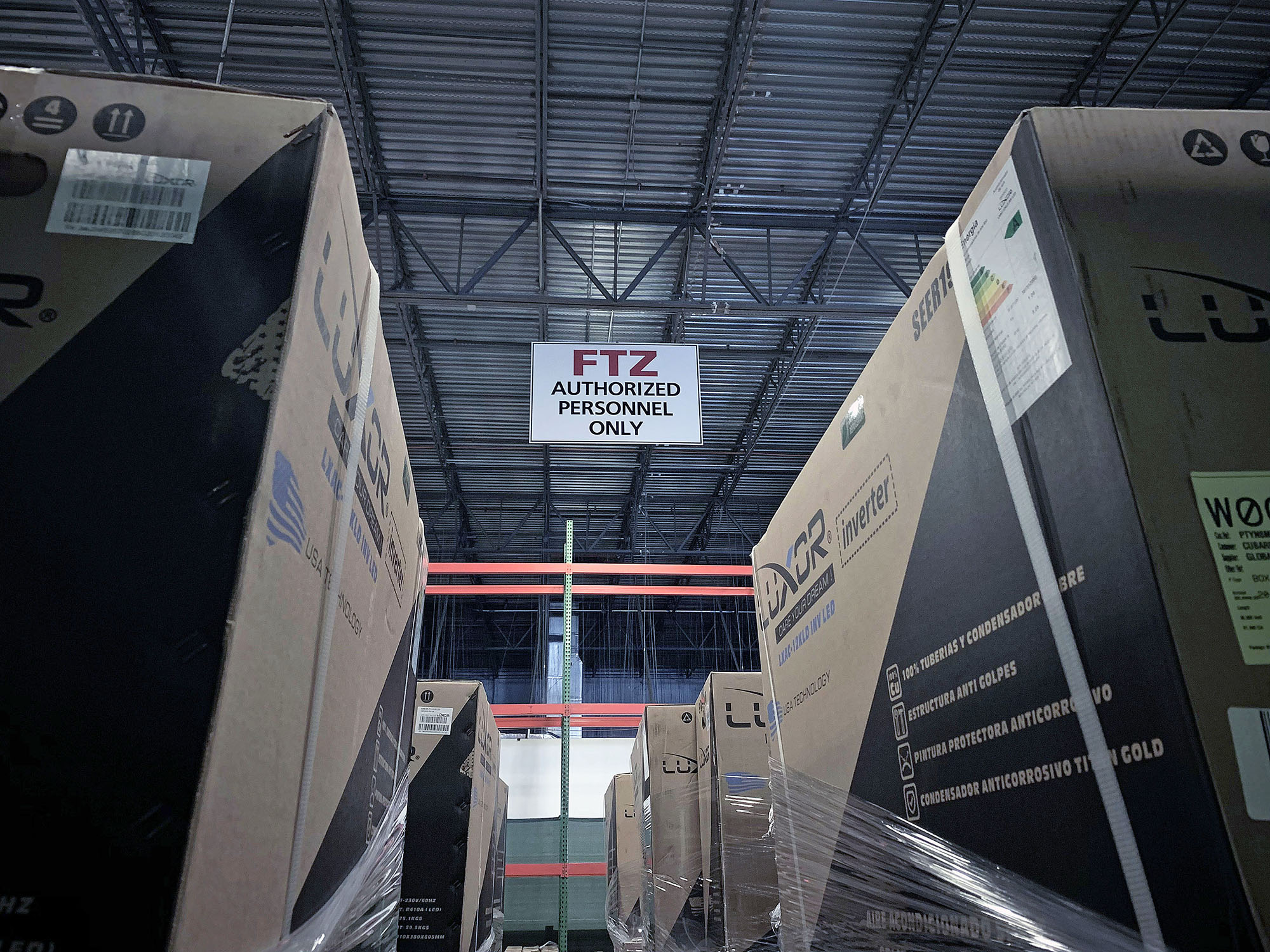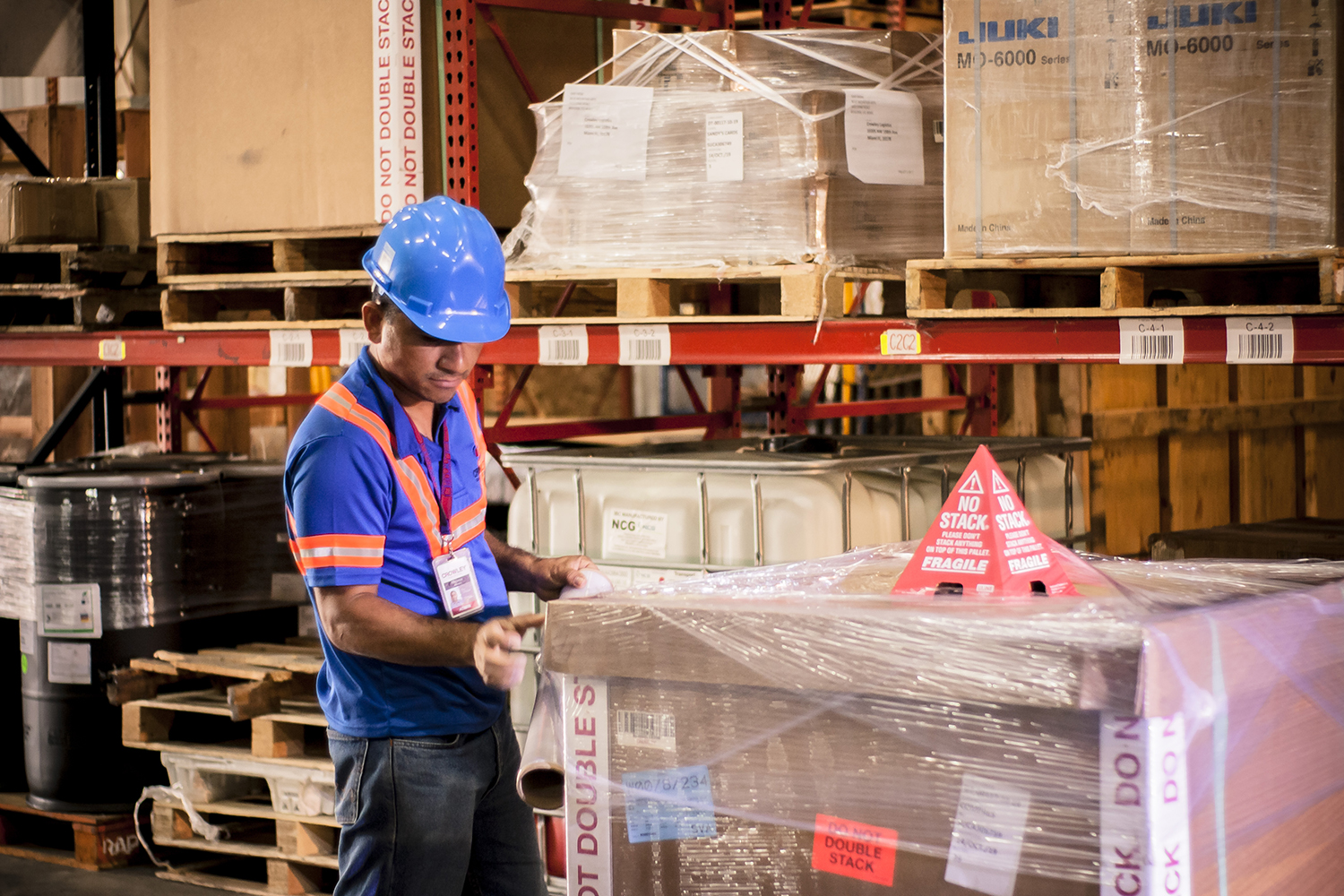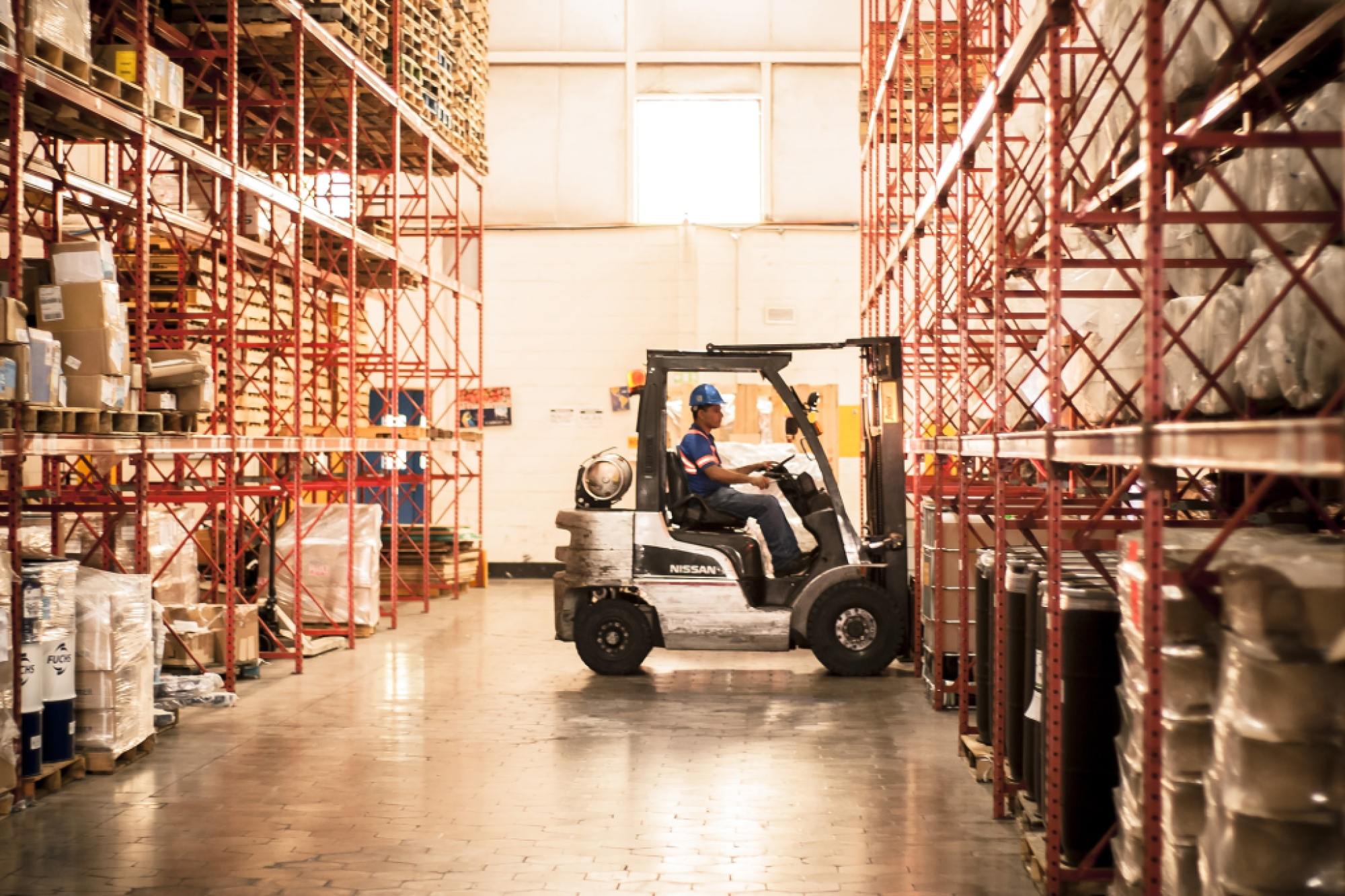
Customs Clearance/Brokerage
We’ll help you navigate the advantages of
using Foreign Trade Zones (FTZs).
When it comes to shipping goods into the United States, Crowley can help you determine the best and most effective way to store goods and clear them with U.S. Customs. One option for supply chain efficiency is taking advantage of Foreign Trade Zones (FTZ).
Learn to defer CBP entry procedures and duties
FTZs are secure areas under U.S. Customs and Border Protection (CBP) supervision that are generally considered outside CBP territory. Both foreign and domestic goods can enter the zones and there are no formal CBP entry procedures and payments of duties required on the merchandise, unless and until, it enters CBP territory for domestic consumption.
Domestic goods moved into the zone for export may be considered exported upon admission to the zone for purposes of excise tax rebates and drawback.


Discover the opportunities from A to FTZ
There are several reasons why companies will choose to use a Foreign Trade Zone. They can manufacture, repack, destroy and store their goods until the time that they either export or enter their wares into the commerce of the United States.
There is no time limit. Only a Harbor Maintenance Fee is required to be paid.
- Duty Exemption. No duties on, or quota charges on re-exports.
- Duty Deferral. Customs duties and federal excise tax deferred on imports.
- Inverted Tariff. In situations where zone production results in a finished product that has a lower duty rate than the rates on foreign inputs (inverted tariff), the finished products may be entered at the duty rate that applies to its condition as it leaves the zone (requires prior authorization).
- Logistical Benefits. Companies using FTZ procedures may have access to streamlined customs procedures (e.g. “weekly entry” or “direct delivery”).
- Other Benefits. Foreign goods and domestic goods held for export are exempt from state/local inventory taxes. FTZ status may also make a site eligible for state/local benefits which are unrelated to the FTZ Act.
- Merchandise in a zone may be assembled, exhibited, cleaned, manipulated, manufactured, mixed, processed, relabeled, repackaged, repaired, salvaged, sampled, stored, tested, displayed and destroyed.
- Production activity must be specifically authorized by the FTZ Board. (Production activity is defined as activity involving the substantial transformation of a foreign article or activity involving a change in the condition of the article which results in a change in the customs classification of the article or in its eligibility for entry for consumption.)
- Retail trade is prohibited in zones.
- Any merchandise that is not prohibited from entry into the territory of the U.S. may be admitted to a zone.
- If applicable, import licenses or permits from other government agencies may still be required to bring the merchandise into the zone.
Prior to any manipulation or manufacture, which would change its tariff classification, Crowley’s compliance experts can help an importer apply to have imported merchandise in the zone given privileged foreign status. The merchandise is classified and appraised and duties and taxes are determined as of the date the application is filed. When such merchandise is transferred from the zone for U.S. consumption, the applicable duties and taxes would be paid based on the rate established when privileged foreign status was granted.
Merchandise transferred to a zone from CBP territory for storage is considered exported and cannot be returned to CBP territory for consumption. The status of merchandise transferred to a zone under these circumstances is “zone restricted.” Zone restricted merchandise may not be manipulated, except to destroy it, or manufactured in a zone.
Other Considerations with FTZs
Because FTZ shippers incur the same costs when it comes to goods distributed in the U.S., it is more common for them to use an FTZ as a “parking space” for their domestic shipments.
Remember, too, that domestic goods cannot be bonded, so any American goods must be stored in an FTZ even if they’re slated for distribution overseas.

Resources
- Duty Classification & Preferential Trade Agreement Assistance
- First-Time & Foreign Importer Setup
- Country of Origin Verifications
- Proper Labeling / Marking Assistance
- Free Trade Agreement Verifications
- Quota / Visa / TPL Entry Processing
- Importer Security Filing / Rapid Self-Filing
- In-Bond / In-Transit Cargo Management
- Duty Drawback Processing and Entry Reconciliation
- Transportation Coordination and Delivery Assistance
- All Risk Cargo Insurance
- Importer Registration (CF5106) and Foreign Importer Registration (non-resident importers certification)
- Customs Bond Application/Renewals
- Importer Security Filing (10+2) all cargo
- C-TPAT Application, Validation and Audit Assistance
- All Risk Cargo Insurance
- Credit Application
- Importer Profile
- Notify Party Instructions
- Payment Instructions
- Power of Attorney
- FDA Agent Representation
- FDA Red List Removal
- FDA Food Facility Registration
- Food Safety Modernization Act (FSMA)
- USDA/APHIS Import Permit
- Agriculture Marketing Service
- Country of Origin Labeling (COOL) Requirements
- USDA/APHIS Fumigation Requirements
- Plastic Packing Requirements
- Meat and Poultry Packaging Requirements
- ISF (Importer Security Filing) 10+2, 24 hours prior to container loading the vessel at port of origin (Ocean cargo only).
- Legible copy of the Bill of Lading or Airway Bill
- Notify Party must state Crowley
- Commercial Invoice (must include the following)
- Port of Entry
- Shipper Name & FDA Registration number
- Receiver Name
- Description of Merchandise
- Quantity: weight & measures
- Purchase price in currency of sale
- Country of Origin
- If product is for consumption or otherwise